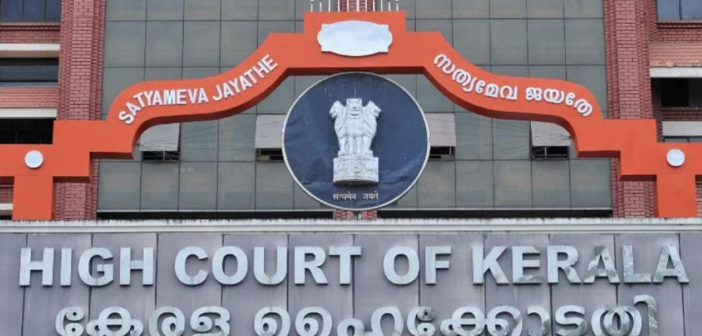In this edition of the Court Judgements review, we look at the Supreme Court’s judgement on preserving records of an election, Orissa High Court’s judgement on withholding leave encashment benefit, Kerala High Court’s decision on termination of pregnancy, Bombay High Court’s judgement on right to protest, and Kerala High Court’s judgement on sexual assault allegations.
Supreme Court: Each and every document pertaining to an election is important and all efforts should be made to preserve the same
In Vijay Bahadur vs. Sunil Kumar, the apex court held that people are undeniably at the centre of the conception of democracy, and upholding the integrity of the vote is a testament to the vision of our Constitution makers, therefore each and every document pertaining to an election is of utmost importance, and all efforts must be made to preserve the same.
The two-judge bench comprising Justice Sanjay Karol and Justice Nongmeikapam Kotiswar Singh was hearing an appeal against the judgement of the Allahabad High Court. This case involves an electoral dispute between two candidates contesting for the position of Gram Pradhan in Chaka @ Chak, Saidabad, Tehsil Handia, District Prayagraj, Uttar Pradesh. The election was declared on 17 March 2021, and voting took place on 2-3 May 2021. The appellant, who lost the election, raised concerns over a discrepancy in the vote count at polling booths 43, 44, and 45. According to the Presiding Officer’s initial statement, a total of 1,194 votes were cast in these booths. However, the final tally recorded in Form 46 showed 1,213 votes, reflecting a difference of 19 votes. The appellant, having lost the election by 37 votes, suspected foul play and alleged that votes in his favour had been cancelled at counting tables 13, 14, and 15 at Nyay Panchayat Utarav, allegedly in connivance with the winning candidate.
The appellant submitted an application to the Election Officer, requesting a recount of votes from the disputed booths, but his request was denied. He then filed an Election Petition before the Sub-Divisional Magistrate (SDM) under the U.P. Panchayat Raj Act, 1947. Separately, he also filed an RTI request seeking access to the Matpatra Lekha (Ballot Account) and the Presiding Officer’s Diary but was informed that the documents could not be located.
The SDM ordered a recount of votes at booths 43, 44, and 45. This order was challenged before the Allahabad High Court, where a Single Judge Bench ruled against the appellant, stating that while his allegations were substantial, he had not provided supporting documentary evidence. The High Court held that in the absence of such evidence, a recount could not be ordered and set aside the SDM’s decision. The Supreme Court reviewed the case and held that the recounting of votes should not be ordered lightly, including the precedent set in Suresh Prasad Yadav vs. Jai Prakash Mishra.
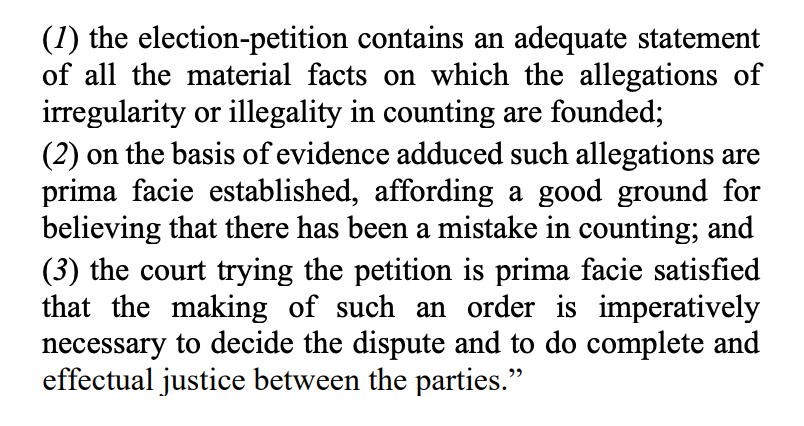
The Court also noted serious irregularities in the present election- missing election records, including the Presiding Officer’s Diary, discrepancy in vote count between the number informed to the appellant and the final tally, three out of four contesting candidates supporting a recount, and allegations that police forcibly removed the appellant from the polling area.
The Court emphasized that every vote is important, and the absence of key election documents raises questions about the integrity of the process. It held that if election records cannot be verified, the final result remains questionable. Given the missing documents, the allegations of irregularities, and the support of other candidates for a recount, the Supreme Court found a recount to be justified.

Accordingly, the Allahabad High Court judgement is set aside and the SDM’s order for the recount of votes is restored.
Orissa HC: In the absence of any statutory rules, the leave encashment benefit cannot be withheld to the employees who are involved in any judicial/disciplinary proceedings.
In Sri Chittaranjan Senapati vs. State of Odisha & Anr., the Orissa High Court held that in the absence of any statutory rules, the leave encashment cannot be withheld by the authorities and it is not open to the State Government to take away a part of the pension or gratuity or even leave encashment without any statutory provision under the guise of administrative instruction.
The petitioner, a retired Motor Vehicles Inspector under the Odisha Transport Department, challenged the rejection of his claim for unutilized leave salary by order dated 06 August 2024. The authorities withheld the payment citing pending vigilance and disciplinary proceedings. The primary legal question was whether such withholding, in the absence of explicit statutory provisions, was legally tenable. The petitioner argued that there is no statutory provision allowing the withholding of unutilized leave salary in such circumstances and that Rule 66 of the OCS (Pension) Rules, 1992, which pertains to gratuity, is inapplicable. Citing State of Jharkhand & Ors. vs. Jitendra Kumar Srivastava & Anr., he contended that executive instructions lack statutory authority under Article 300A of the Constitution and cannot deprive him of his rightful benefits. The petitioner also relied on the Division Bench ruling in State of Odisha & Ors. vs. Nirmal Chandra Satapathy & Anr., which held that unutilized leave encashment cannot be withheld without statutory backing.
The Counsel for the State opposed the claim, citing a Finance Department memorandum which prohibits payment of leave encashment if judicial or departmental proceedings are pending.
Considering the arguments made by both parties and the legal precedents, the Court remarked that there is no legal provision prohibiting payment of leave encashment in such circumstances. Further, Consistent with the Supreme Court’s ruling in Jitendra Kumar Srivastava, an executive instruction lacks statutory authority to withhold financial benefits and the Nirmal Chandra Satapathy ruling invalidated similar attempts to withhold leave salary based on administrative instructions.
Accordingly, the court quashed the order dated 06 August 2024 and directed the authorities to sanction and disburse the petitioner’s unutilized leave salary within two months.
Kerala HC: Length of pregnancy is not a matter for termination if the Medical Board opines that a substantial foetal abnormality exists.
In XXX vs. Union of India, the Kerala High Court held that the gestation period of pregnancy does not matter for termination if the Medical Board opines that a substantial foetal abnormality exists as per the Section 3(2)-B) of the Medical Termination of Pregnancy Act, 1971.
The details of the case are as follows. The petitioner, 31 weeks pregnant with her second child, discovered severe foetal abnormalities in an ultrasound on 10 February 2025 after prior scans showed normal development. Medical experts confirmed that the foetus lacked key brain structures, leading to a high risk of severe mental and physical disabilities. Continuing the pregnancy caused immense mental and physical distress to the petitioner and would result in the birth of a child with severe disabilities, imposing lifelong challenges on both the child and the petitioner’s family. Consequently, the petitioner sought permission for medical termination of pregnancy. When the writ petition was considered on 04 March 2025, the petitioner was referred to the Medical Board of the Government Medical College Hospital, Ernakulam, on 05 March 2025. The Government Pleader presented the Medical Board’s report on 07 March 2025, which included assessments from four specialists—an Associate Professor from the Department of Obstetrics and Gynaecology, a Professor and Head of the Department of Radiodiagnosis, an Associate Professor from the Department of Paediatrics, and an Assistant Professor from the Department of Psychiatry. The Medical Board confirmed that, as per foetal ultrasound reports, there was a substantial risk of the baby being born with neurological abnormalities.
As the petitioner had completed 30 weeks of gestation as of 25 February 2025, there was a possibility that the baby might be born alive with complications related to preterm birth. The petitioner’s counsel submitted that she was willing to undergo the termination at a super-speciality hospital using an intracardiac injection to terminate the foetus before proceeding with the medical termination to prevent live birth. He cited Government of India guidelines referenced in A (Mother of X) vs. State of Maharashtra, to support this intervention.
The single-judge bench of the High Court, after reviewing legal precedents, acknowledged that the ultrasound reports and the Medical Board report clearly demonstrated the substantial risk of neurological abnormalities if the baby were born alive. It ruled that the petitioner was eligible for pregnancy termination under Section 3(2-B) of the Act, given the confirmed foetal abnormalities. However, since the petitioner had completed 32 weeks of gestation, the Medical Board highlighted the possibility of live birth, raising the question of the unborn child’s right to life under Article 21 of the Constitution, as affirmed in Indulekha Sreejith vs. Union of India and Others.
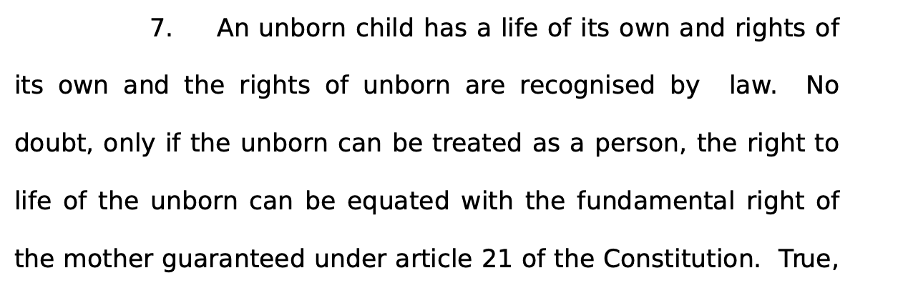
Considering the foetus’s potential right to life, the court declined permission for intracardiac injection. Additionally, the petitioner’s request to choose the hospital for termination was denied. After a thorough evaluation of the facts, legal precedents, and the Medical Board’s recommendations, the court partially allowed the writ petition by directing the fourth respondent to proceed with the pregnancy termination while rejecting the petitioner’s request for iatrogenic foetal demise and hospital selection.
When this judgement was further challenged, the Division bench of the High Court held that the length of pregnancy is not a barrier to termination if the Medical Board confirms a substantial foetal abnormality. The appellant is granted permission for iatrogenic foetal demise. She is also allowed to undergo the procedure at a hospital of her choice.
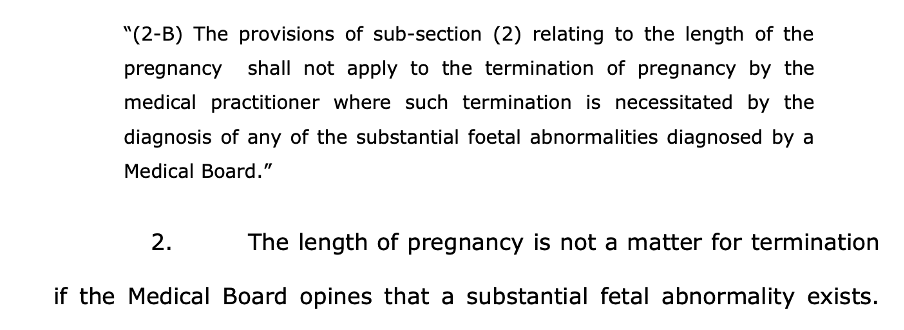
Accordingly, the appeal is disposed of.
Bombay HC: The Lines between the constitutional right to protest and the unleashing of penal prosecutions cannot be allowed to be blurred.
In Tukaram Parab vs. State, the Bombay High Court held that Prosecutions must not be launched to stifle agitations that are part of the democratic process so long as people do not take the law into their own hands or indulge in violence or damage to public or private property. Blurring the lines between the Constitutional right to protest and the unleashing of penal prosecutions cannot be allowed.
The brief facts of the case are as follows. The petitioners have filed this petition under Article 226 of the Constitution and Section 482 of the Cr.P.C., seeking to quash FIR No. 2/2021 (registered at Valpoi Police Station and later transferred to the Crime Branch) and Charge Sheet No. 96/2023. Their counsel argues that even if the allegations in the FIR are taken at face value, they do not constitute any offence. The petitioners were not present during the morning protest on 06 January 2021 but were allegedly part of a crowd of around 300 people who marched to Valpoi Police Station in the afternoon. There are no specific accusations against them regarding violence, possession of weapons, destruction of government property, or any unlawful intent beyond raising slogans. The prosecution contends that the crowd, including the petitioners, obstructed the road, refused to disperse despite police warnings, and threatened to storm the police station.
Considering the arguments from both parties, the court notes that there are no allegations directly linking the petitioners to unlawful activities, nor any evidence of shared criminal intent, as required under Section 149 IPC. Citing Supreme Court precedents, it observes that mere presence in a large gathering is not a crime unless accompanied by an unlawful objective.
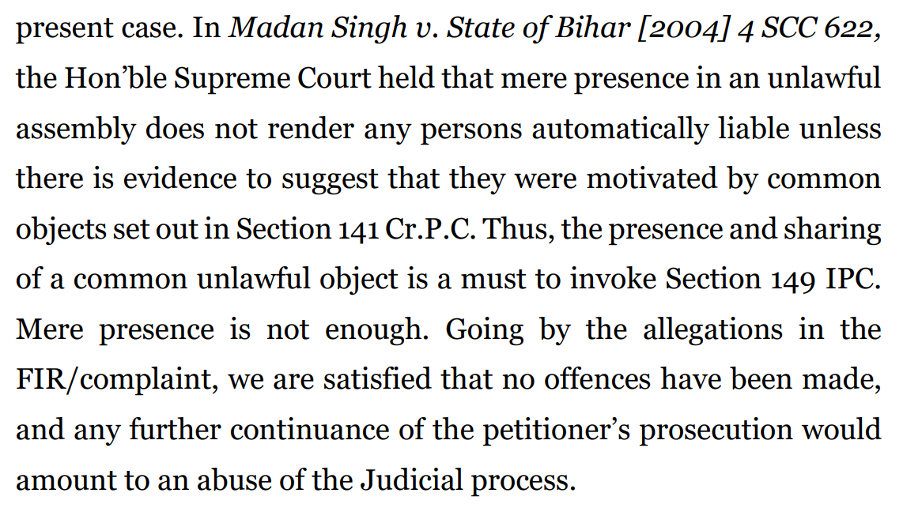
Furthermore, peaceful protests are a fundamental right under Article 19(1)(b) of the Constitution, and vague or unfounded criminal charges should not be used to suppress democratic dissent. Blurring the lines between the right to protest and the unleashing of penal prosecutions cannot be allowed, and if such a mindset gains traction, it would be a sad day for democracy.
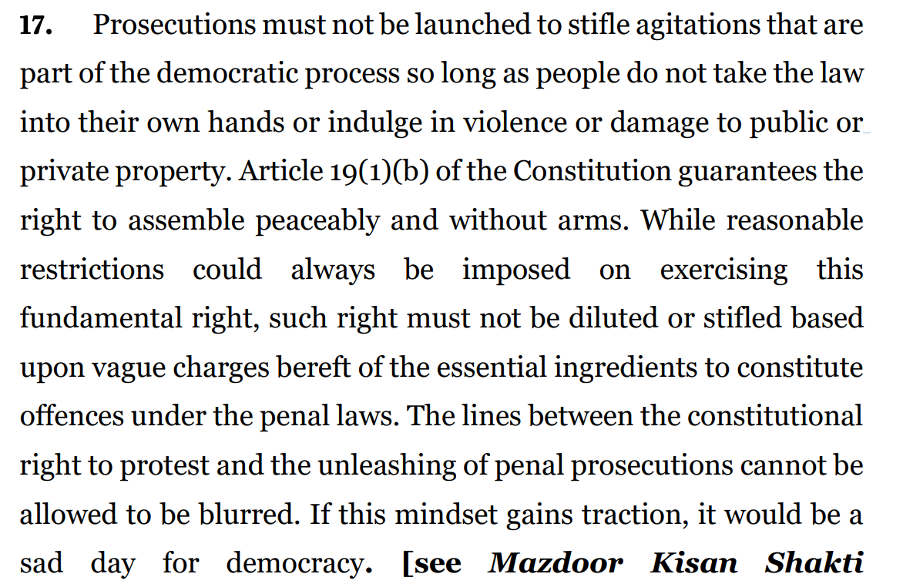
Accordingly, the FIR and charge sheet against them are quashed.
Kerala HC: Concept that Indian women does not file false rape cases diluted, increasing false rape cases to settle scores.
In Ajith vs. State of Kerala, the Kerala High Court held that for years, Indian society has operated on the belief that no woman would falsely allege sexual assault due to the social stigma attached. However, in recent times, this presumption has weakened, with some cases revealing false accusations used to settle personal scores.
The brief facts of the case are as follows. The Criminal Miscellaneous Case has been filed under Section 482 of the Code of Criminal Procedure, 1973, seeking the quashing of proceedings in S.C. No. 921/2019 before the Assistant Sessions Court, Ottappalam. The case originated from Crime No. 69/2019 of Koppam Police Station, Palakkad, in which the petitioner is the accused.
The petitioner is alleged to have sexually assaulted the complainant between 30 May 2014, and 20 April 2019, under the false pretence of marriage, thereby committing an offence punishable under Section 376 of the Indian Penal Code (IPC). The prosecution contends that the petitioner retracted from his promise of marriage, leading the complainant to file a First Information Report (FIR) on 20 April 2019.
The petitioner, however, argues that the allegations are false and that the delay in filing the complaint—almost five years after the alleged first incident—raises serious doubts about the veracity of the claims. The petitioner further points out that a previous complaint with similar allegations was lodged by the complainant in 2016 but was not pursued, as the petitioner had reassured his commitment to marriage. Additionally, the complainant admitted to having no contact with the petitioner for three years prior to filing the FIR.
The complainant later submitted an affidavit supporting the quashing of proceedings, stating that she no longer had any grievance against the petitioner. Despite this, the prosecution opposed the quashing, arguing that the case presented sufficient grounds for trial and should not be dismissed prematurely.
Considering submissions by both parties, the Court remarked that, in Indian society, any girl would not make any allegation of sexual assault or any other mode of misconduct against a person, as the same would prejudice the right of the girl or woman, as the case may be is diluted in recent times and more false rape cases are made to heed to the illegal demands or to settle scores. The court remarked that this concept could not be followed blindly without analysing the truth of the allegations on case to case basis.
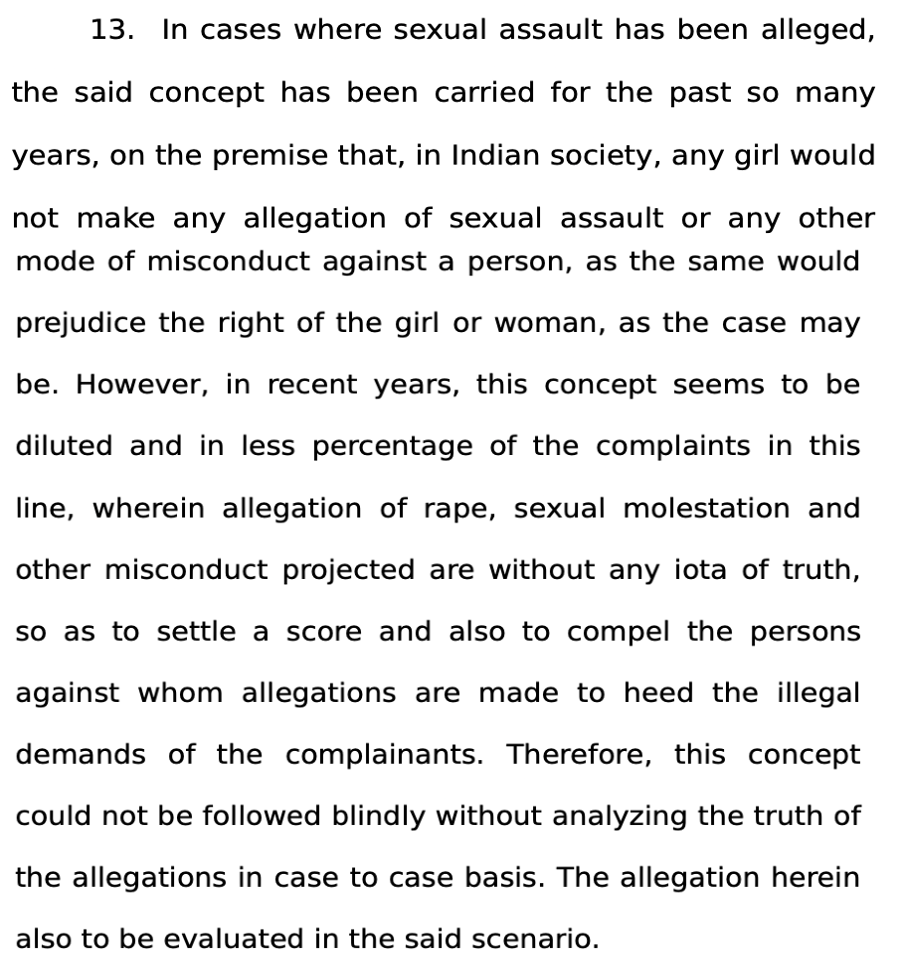
The court noted that the allegations primarily revolved around a consensual relationship and that the delay in lodging the FIR, along with the complainant’s voluntary decision not to proceed with earlier complaints, weakens the case for prosecuting the petitioner under Section 376 of the IPC. Given the lack of substantial evidence to establish coercion or force, and considering the complainant’s withdrawal of grievance, the court concluded that the proceedings against the petitioner should be quashed.
Accordingly, the petition for quashing was allowed.


